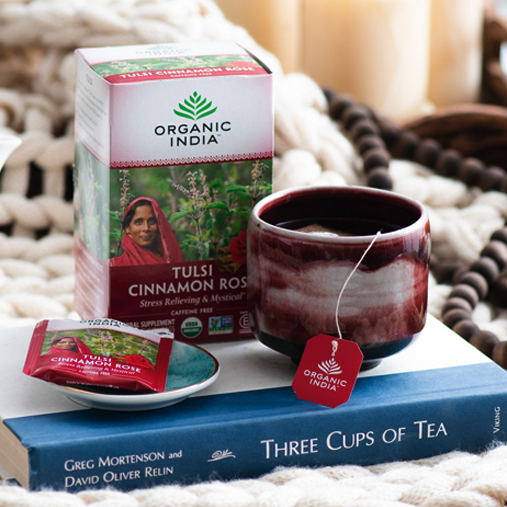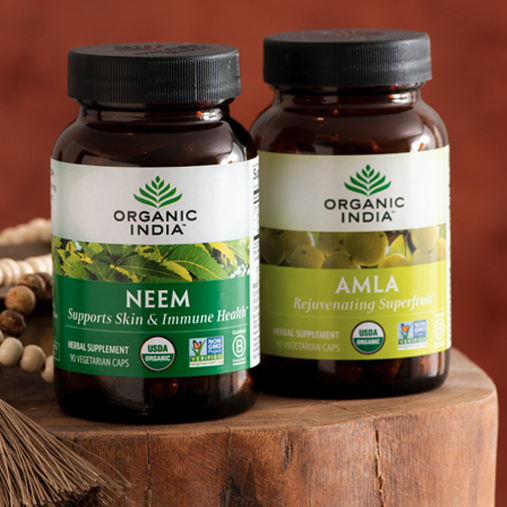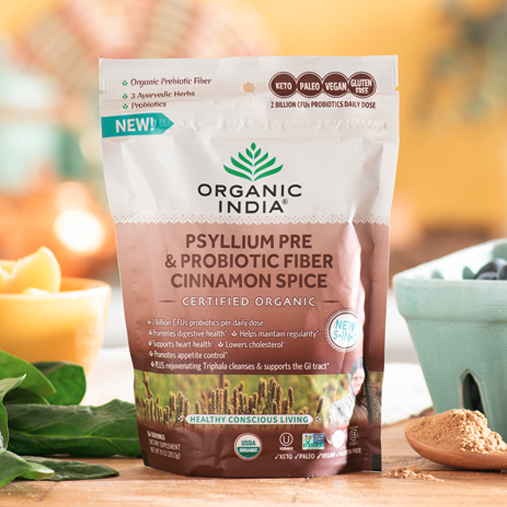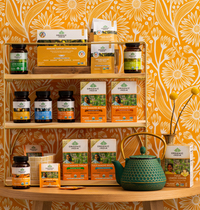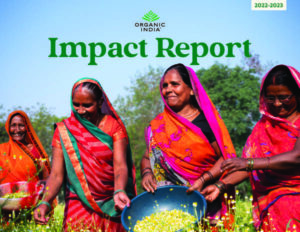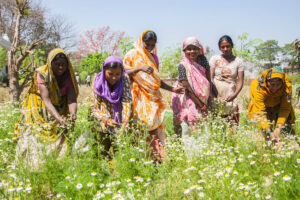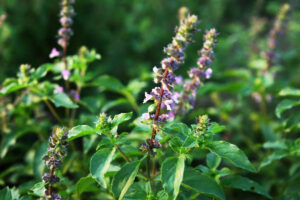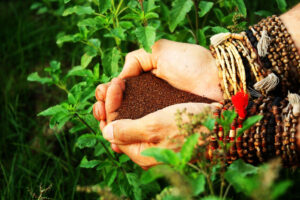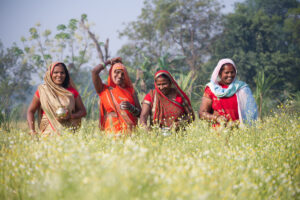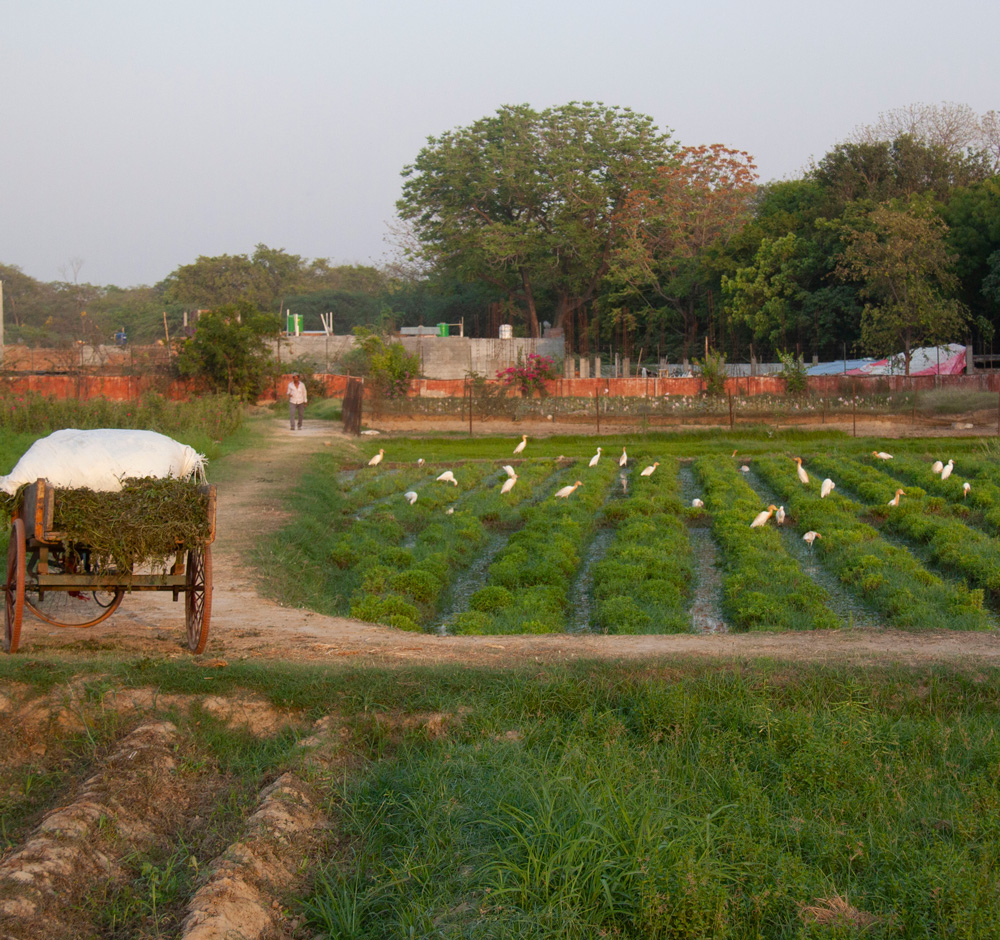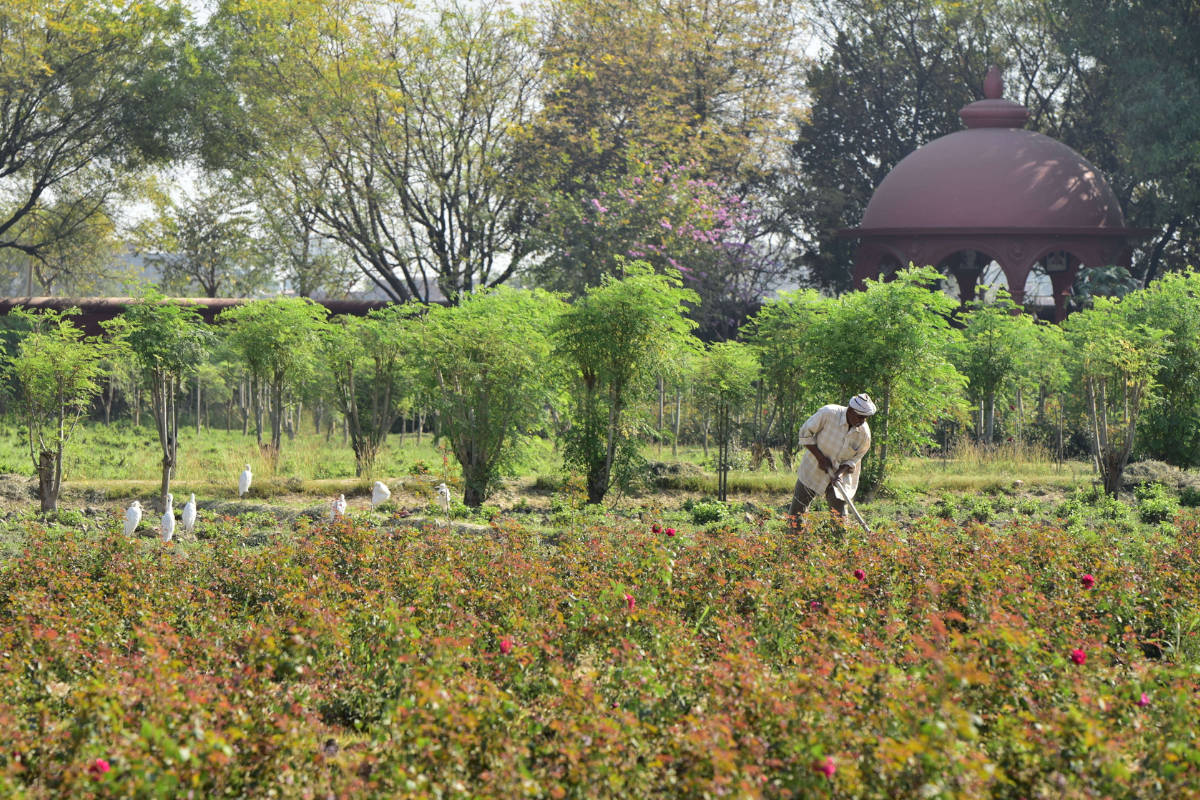Beyond Sustainability with Regenerative Agriculture
While sustainable agriculture is essential for preserving natural resources for future generations, ORGANIC INDIA has moved a step beyond to regenerative farming — farming that goes beyond sustaining the status quo to recovering nature’s balance; methods that serve to restore every aspect of the environment.
ORGANIC INDIA has proven that agriculture can restore and protect the natural environment. Food and plant farming can work so harmoniously with nature that depleted soil is enlivened, insect pollinators return, water resources are replenished, and each crop cycle strengthens nature’s balance.
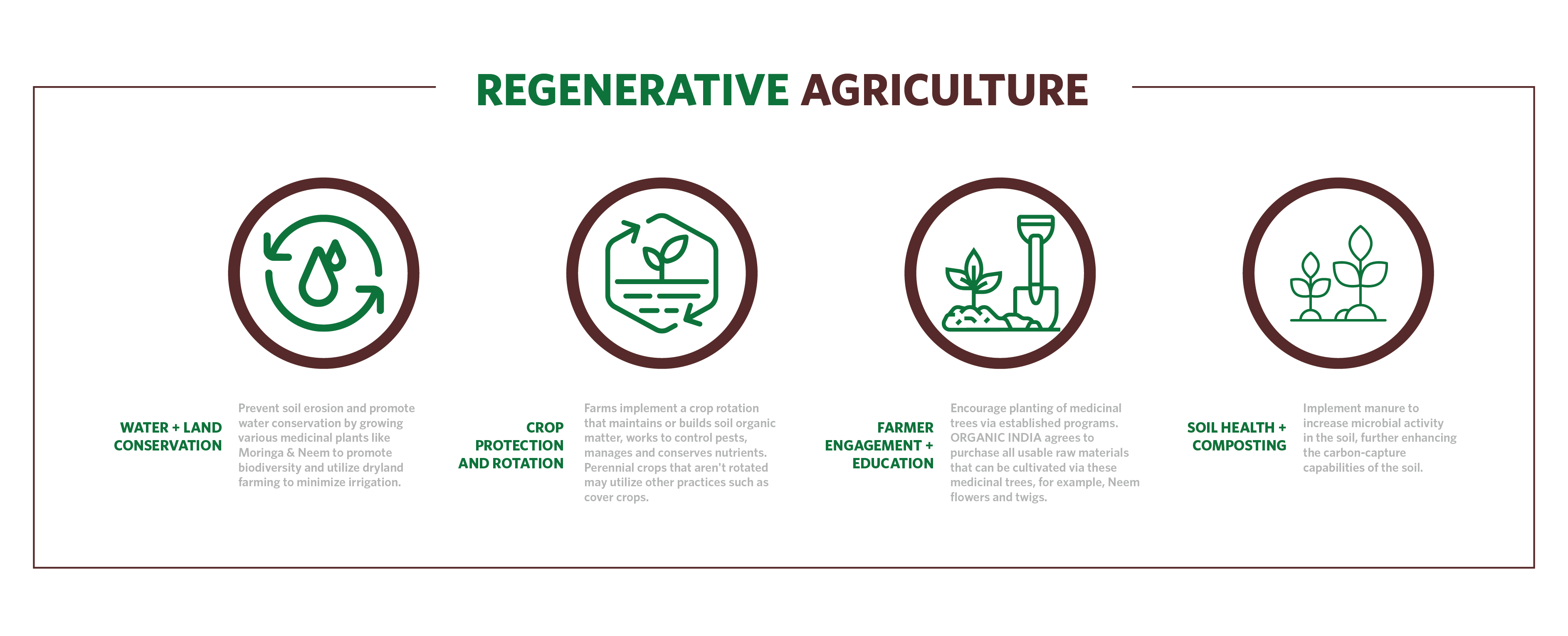
“Food and plant farming can work so harmoniously with nature that depleted soil is enlivened, insect pollinators return, water resources are replenished, and each crop cycle strengthens nature’s balance.”
Traditional Wisdom Restored
ORGANIC INDIA’s regenerative agriculture program includes soil fertility management with composting and crop rotation, planting and harvesting with lunar cycles as per ancient wisdom, seed collection, water management, and biodiversity.
Regeneration extends beyond restoring and protecting the earth. ORGANIC INDIA’s use of ancient agricultural wisdom has restored and revitalized rural communities and their economies, bringing healthcare and education to villages once ruined by the industrial farming revolution.
Read OnBhrindavan Research Farm
During the 1960s, India attempted to introduce Western industrial agriculture methods that included chemical fertilizers, pesticides, and non-native GMO seeds. The ancient Indian farming practices, called Vrishka Ayurveda, were abandoned, and commercial chemical products and hybridized seeds devastated the soil, environment, and water supplies. Crops failed, and farmers were driven into a downward spiral of debt and poverty.
ORGANIC INDIA established the Brindavan Farm as a research facility dedicated to recovering the lost regenerative Vriskha system. Every insect, plant, and animal plays a vital role in natural cycles — cows consume unused crop material,providing manure for composting. Insects pollinate crops, and plant species and wild birds help repel and manage unwanted pests.
Brindavan Farm has been used to test strains of Tulsi, or “Holy Basil,” ORGANIC INDIA’s foundational herb. Organic rose petals for the Tulsi Sweet Rose tea flavor are grown at Brindavan, as well as jasmine flowers and several varieties of mint, chamomile, and pomegranate — all used as flavoring for other tea varieties. Brindavan is also a pilot farm for cultivating optimal herb strains that are endangered or rare, as well as growing herbs not traditionally grown organically in India such as lemongrass and hibiscus.
Return to Regenerative StoriesFarms that are Fully Alive
Our regenerative farming practices go further by treating each farm as a unique organism, including practices like comprehensive soil fertility management, seed collection, composting, water management, as well as crop protection and rotation, animal welfare, and biological diversity. Our practices benefit the land, farmers and consumers, while setting a higher standard for a safe and vibrant future for all.
Read our Impact ReportRegenerative Organic Alliance
We are proud to be an official corporate ally of the Regenerative Organic Alliance, who created the Regenerative Organic Certification (ROC). This framework meets the highest standards in the world for soil health, animal welfare, and farmworker fairness. Regenerative Organic Certified was established in 2017 by a group of farmers, business leaders, and experts in soil health, animal welfare, and social fairness collectively called the Regenerative Organic Alliance, or ROA. By adopting regenerative organic practices on more farms around the world, we can create long-term solutions to the climate crisis, factory farming, and fractured rural economies.
Learn More
